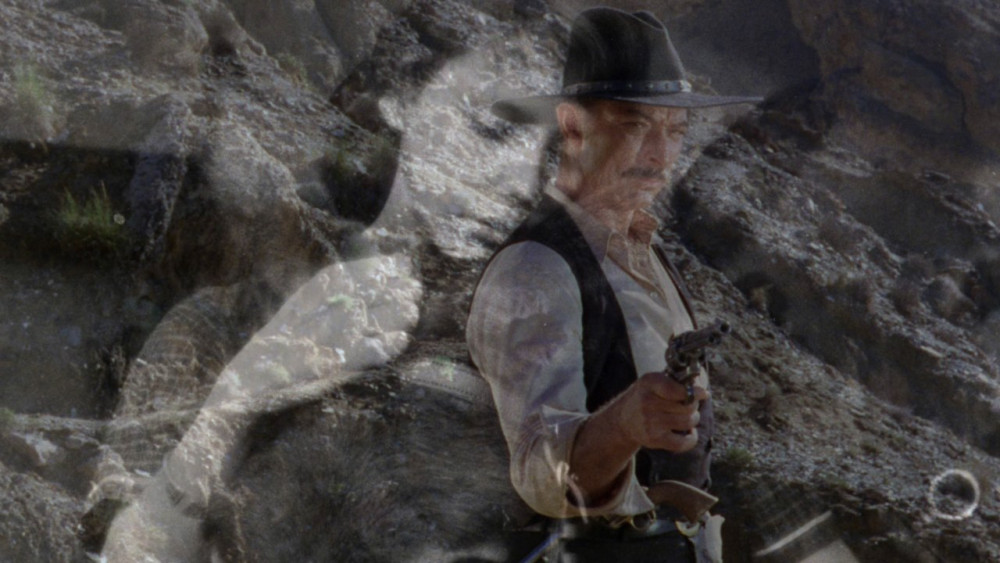
On some level, I feel like I’ll always have an arty-farty Real Critic™ bias towards scope, ambition, and artistic aims, try as I might to discredit the inherent worth of such arbitrary, exclusionary ideals in film. It’s hard not to see a movie that tries to engage with the very nature of the human spirit as somehow inherently superior to a movie with tons of fart fart poop jokes, regardless of the quality of those fart fart poop jokes or the gut-busting potential of the scene where a man perhaps steps in the dookie and it makes a big ol’ squish. I’m a die-hard genre fan, a woman who is willing to go to bat for Freddy Got Fingered as the greatest piece of anti-capitalist dada comedy ever created and a staunch advocate for the subjective nature of all criticism, but even I can’t shake some form of seemingly inborn snobbery, the kind I must’ve received from the critical unconscious when I watched my first Bergman film, the kind that decides without my agency which films feel Important and assigns an extra star or two to their name in my brain rolodex. So The Big Gundown would’ve had a tough show of it against Au Hasard Balthazar given the best of circumstances; the fact that I found it eye-glazingly boring was more the rocks tied to a drowning man’s ankles than the lack of swimming lessons that brought him to that position in the first place.
I don’t mean that The Big Gundown is bad, exactly. As we follow our hero John Corbett, very much in the Man With No Name mold, his trials in attempting to capture outlaw Cuchillo are mostly well-handled, pleasantly staged, and don’t often overstay their welcome. Corbett’s integrity clashes well with Cuchillo’s guerrilla-style retaliations and escapes, clever and properly undignified in their jury-rigged improvisation. The problem isn’t really with those characters. Instead, it’s the repetitious nature of the whole enterprise that grates, as watching Cuchillo escape over and over and over again stops feeling engaging or enjoyable long before the film actually decides to wrap up its simplistic plotting and obvious political message, and at nearly two hours in the Italian cut it greatly overstays its welcome (this is one situation where I think the plot vagueness and faster pace of the American theatrical cut might actually improve upon the film).
In fact, it’s hard for me to say much in detail on the film, as watching it started out fine but quickly developed into me struggling to not drift into my own thoughts, and I found myself missing the dialogue in many scenes as my eyes kept watching but my brain tuned out. This is, perhaps needless to say, not a great feature for most movies. It ends up feeling tedious and incredibly long, the same scenes circling the same endpoint that anyone could see in the first 20 minutes. Worse, the circling happens without much in the way of flair. It might just be a certain distaste I have for the masculine and severe characterizations that spaghetti westerns seem to track in almost exclusively, men with strong jawlines and unwaveringly determined eyes bent on single-handedly maintaining a sense of justice in an unjust system. Where the cold films of Michael Mann turn that kind of distant, haunted violence into an existential plea against the world’s loneliness, spaghetti westerns even in their revisionism seem dead-set against making those emotionally grand gestures. A lot of quietly deadly men engaging with the world through violent bluster, left unsubverted and unexpanded, is just not my bag.
Art movies about sad donkeys though? That’s precisely my bag, and to say Au hasard Balthazar exceeds The Big Gundown in both scope and execution doesn’t say the half of it. The great problem of all life is the problem of suffering, and Balthazar takes the bold stance to not just comment on the very heart of what it means to suffer, but encapsulates all of what life has to offer, in its every pain and torment and, crucially, in its tiny, momentary graces. It’s a big task, perhaps the biggest any piece of art can take on, and to succeed with aplomb isn’t merely impressive, it almost defies the audience in its very existence. To take the simple milieu of a town full of imperfect people and to visualize the massive problem of our consciousness through the unacting eyes of a single donkey is audacious, and Balthazar succeeds in making a saint of that donkey. If there is a pure being in cinema, one whose death can truly be considered a tragedy, it’s Balthazar, a hero among heroes and the noblest animal to walk the screen, including the humans. Especially the humans.
From birth to death, we follow Balthazar’s ping-ponging between owners, some overtly cruel, some forgetfully negligent, some loving but with all the sin that being human entails, and we see the scope of life’s tragedy through his unchanging eyes. His two kindest owners–Marie, a young girl who knew him as a foal and who meets back up with him over and over through her own troubled life, and Arnold, the local drunk who may or may not have committed a murder he doesn’t remember–are respites from his suffering, but also causes of it. His cruelest owner Gérard might as well be evil incarnate. All comfort for Balthazar comes sparingly, haltingly, and almost at random, and all peace for our humans comes much the same, and often followed by their own debasement. But Balthazar never retaliates, never acts out of much beyond a sense of self-preservation, and even that is lost as the film goes on. He suffers and suffers and suffers, but he bears the weight with a purity of spirit that seems to come from a deep sense of both emptiness and wiseness; being without judgement, he is a vessel to be filled with all of life’s offerings. When the children baptize him as a foal, Balthazar is filled with the spirit of God, of the universe, a spirit of often bleak abstraction, and that spirit is his strength to accept all that he comes across.
When Balthazar brays, he is Camus’ Sisyphean hero, given an impotent tool by an uncaring universe but refusing to let it go, fighting against the emptiness that once hollowed out his soul. It is God’s small gift to him, a voice. Having nearly given up after being tormented by Gérard, on the verge of being killed, he’s saved by the drunk man mocked throughout the town, and in seeing another’s suffering loneliness he regains his ability to walk. He concludes that all is well, even in the awfulness, even on the floor, even in the ever-present and ever-growing hands of the soil that will one day consume him. We see our human characters make the same mistakes over and over again, Bresson’s preferred robotic acting style ironically draining away any artifice and leaving us with just actions and words, direct signifiers of humanity’s failings. Marie knows what will hurt her, but she can’t help herself from doing it again and again. Arnold knows what will ruin him, but he can never give it up for long. If they’re pitiable, they’re also empathetic and reflective, even Gérard’s sarcastic, brash cruelty; rudderless, they drift in a sea that can seem endless in its expansive uncaring, and they are understandable but self-defeating as they splash in its waters and rage against its impossibly deep trenches.
So it’s Balthazar who finds the rarity of grace, and achieves it, if only for a moment or two. His crown of flowers, the crowd cheering for his circus trick, a ring of sheep surrounding him as he lays to rest. The suffering will come regardless; the only thing that can be impacted is how one reacts to the suffering, and keeping an open eye is all that allows a being to see those single moments of simple joy. He doesn’t deserve his anguish, his misery, but neither does anyone else; the fact of the matter is that original sin’s long shadow is unfair, cruel, and overwrought. Our degradation at the hands of the universe is ultimately petty, and even the saints know that. Even God knows that. But when he bears his suffering, Balthazar exceeds the human soul’s sense of justice or purpose, and he exceeds even God’s fumbling hands at the start of the universe. A meaningless act he had no control over leaves him shot through the chest, and if it’s tragic because of his nobility, his purity, his strength and his wisdom, it’s well-earned for exactly the same reasons, a reward for a life astonishingly free of any blemish. With patience and a sturdy back, Balthazar finds the only way there is to overcome our existential angst. It is not through ignorance of our suffering or a replacement of pain with fleeting, insubstantial happiness, but through a dedication towards doing what one must do, towards forgiveness and kindness, and through an acceptance of misery as not worth scrubbing clean from the soul. At the end of Herman Melville’s short story “Bartleby the Scrivener”, the narrator famously sighs, “Ah Bartleby! Ah humanity!”, and if there is a hopeless pain in those words, there’s also an unreserved joy. In all our pathetic throws of despair, there is a seed of Balthazar’s love and peace. His sainthood is undoubtable.
Au hasard Balthazar wins, as if that wasn’t clear.
The Winner: Au hasard Balthazar
—
Au hasard Balthazar; directed by Robert Bresson; written by Robert Bresson; starring Anne Wiazemsky, Walter Green, and François Lafarge; 95 minutes.
The Big Gundown; directed by Sergio Sollima; written by Sergio Donati and Sergio Sollima; starring Lee Van Cleef, Tomas Milian, Walter Barnes, Nieves Navarro, Gerard Herter, and Fernando Sancho; 95 minutes (US home video)/89 minutes (US theatrical)/110 minutes (Italy).



 Derek
Derek
 Isabelle
Isabelle